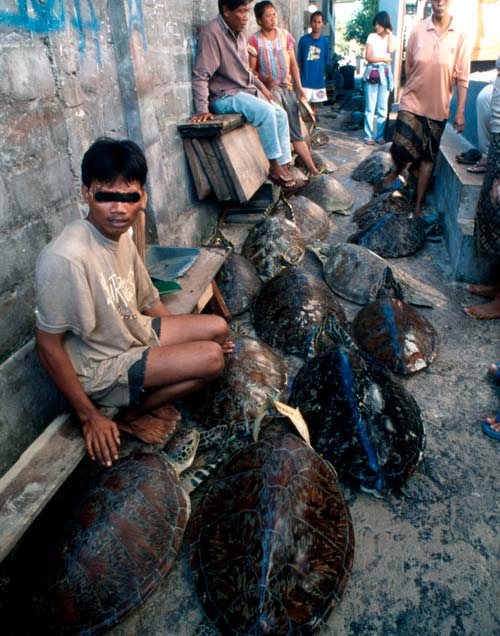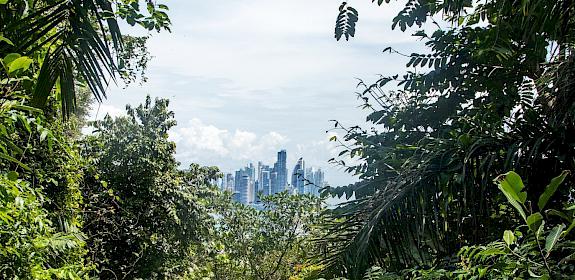Indonesia, Malaysia, Philippines and Viet Nam join forces to crack down on turtle trade
Manila, Philippines, 6th June 2014—Government representatives from Indonesia, Malaysia, Philippines and Viet Nam committed to improve intergovernmental cooperation to curb the illegal trade of marine turtles in the Coral Triangle.

The commitment was made at a marine turtle trade workshop hosted by the Government of the Philippines on 3 to 4 June 2014.
“With the ongoing issue of poaching of marine turtles, the country recognized the need for an integrated approach in addressing this challenge,” said Mundita Lim, Philippine Biodiversity Management Bureau Director.
“The alarming trend over the decade justifies the need for neighboring countries to make transboundary arrangements and improve the protection between national governments,” added Lim.
“Entire populations of marine turtles are being wiped out by persistent poaching, both targeted and as bycatch,” said Joel Palma, WWF-Philippines Vice President for Conservation.
“As foreign fishing fleets are often involved, such inter-governmental collaboration is essential to strengthen local and trans-boundary law enforcement efforts to prevent marine turtles from being poached and traded for use as food and luxury items,” added Palma.
Enough is enough
The workshop comes on the heels of a recent incident when Philippine authorities arrested nine Chinese fishermen off the coast of Palawan just a month ago for carrying about 500 live and dead turtles on their boat. Involvement of local Filipino fishermen in the incident suggests a higher degree of organised supply and trafficking that requires a trans-national response.
This is just one of the numerous poaching and trafficking incidents that have happened not only in the Philippines but also in important marine turtle range countries of Indonesia, Malaysia and Viet Nam, and across the wider Coral Triangle region.
“We need to halt the illegal turtle trade once and for all, otherwise, the work of protecting nesting beaches and feeding grounds will be futile if thousands of turtles are being wiped out at sea,” said Palma.
Heavy demand
Turtles are used mainly for food, souvenirs, jewellery and ornamentation, and in some traditional medicinal systems. The shells of Hawksbill Turtles (known as bekko) have been carved into ornaments and jewellery for many centuries, particularly associated with Japanese traditional crafts.
“Aside from local consumption of meat and eggs, the demand for marine turtle shell and other derivative parts from market destinations including mainland China and Taiwan, Japan and Viet Nam is driving this trade,” said James Compton, TRAFFIC Senior Programme Director, Asia Pacific.
Research by TRAFFIC has identified the island province of Hainan as a major hub for the illegal trade in marine turtle products in China, and work over the past four years with Chinese government authorities and other local stakeholders has greatly increased the attention to market regulation and control.
“The need for inter-agency collaboration on this illegal trade is essential, including the navy and coast guards in a national task force approach, is essential to protect marine turtles in source countries,” added Compton. “Greater law enforcement effectiveness, including investigations and prosecution are important to increase deterrents against participating in wildlife crime.”
All international commercial trade in marine turtles is illegal under the Convention on International Trade in Endangered Species (CITES).
We’re watching
“This timely workshop shows that these source countries are paying attention to what’s happening to marine turtles around the region and that they all share the same challenges,” said Joel Palma.
“Since turtles are transboundary in nature, protecting them requires a more cohesive and integrated approach. This workshop is a major step towards that direction,” added Palma.
The Coral Triangle is home to six of the seven known species of marine turtles including Green, Hawksbill, Loggerhead, Flatback, Olive Ridley, and Leatherback.



